
 Virtual Field Trip—Group 2
Virtual Field Trip—Group 2
Features of the Sierra Blanca Igneous Complex Lava Flow

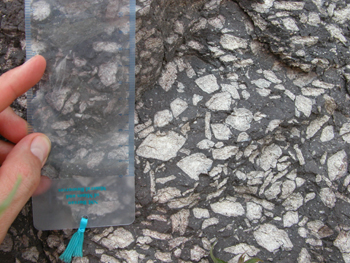
Zachary Leonard
GPS Location: UTM zone13S, 0431768E, 3694950N
This photograph shows tabular crystals with random orientation and sizes varying from 0.5 to 3.5 cm. The crystals make up 45–50% of the rock.
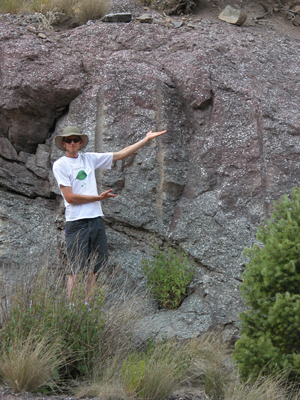
Jason Weisfeld
GPS Location: UTM, zone 13S, 0431733E, 3694940N
The difference in coloration between the top and bottom sections is due to oxidation. In strato volcanoes there are often steam vents that change the original material from a grey/green to a red/purple color.
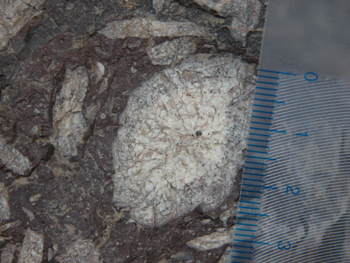
Marcia Barton
GPS Location: UTM zone 13S, 0431733E, 3694940N
This is an example of zonation within the plagioclase crystal in the andesitic lava flow. The zonation indicates that changes occurred in the magma chamber while the crystal was forming over hundreds of years.
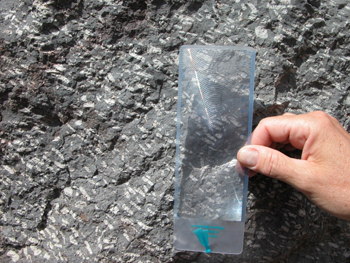
John Lasater
GPS Location: UTM zone 13S, 0431731E, 3694951N
These two photos show examples of crystal alignment. In the photo to the left the crystals are aligned with the flow and below the photo shows a “tractor tread” circular flow (see arrow). In the latter, this is caused by differences in the speeds of the top and bottom of the flow.
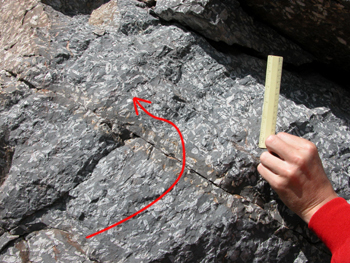
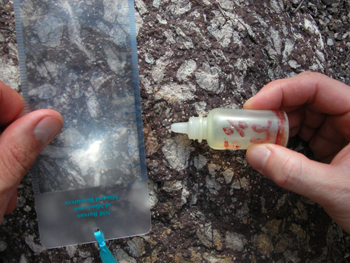
Whole group
GPS Location: UTM zone 13S, 0431733E, 3694940N
These are not little crystals—this is a clue that this is near the top of the lava flow. These vesicles reacted with acid, indicating they are carbonates. They are air bubbles which in-filled with material that was deposited later than the lava flow.
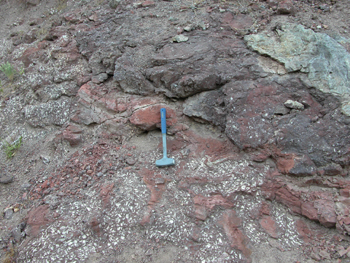
Bruce Lewis
GPS Location: UTM zone 13S, 0431733E, 3694940N
This picture shows the top of the flow, the baked zone of a sedimentary layer, and the underlying earlier lava flow. The underlying flow has large crystals and carbonate-replaced bubbles (vesicles).
Back to Group 2 Overview


